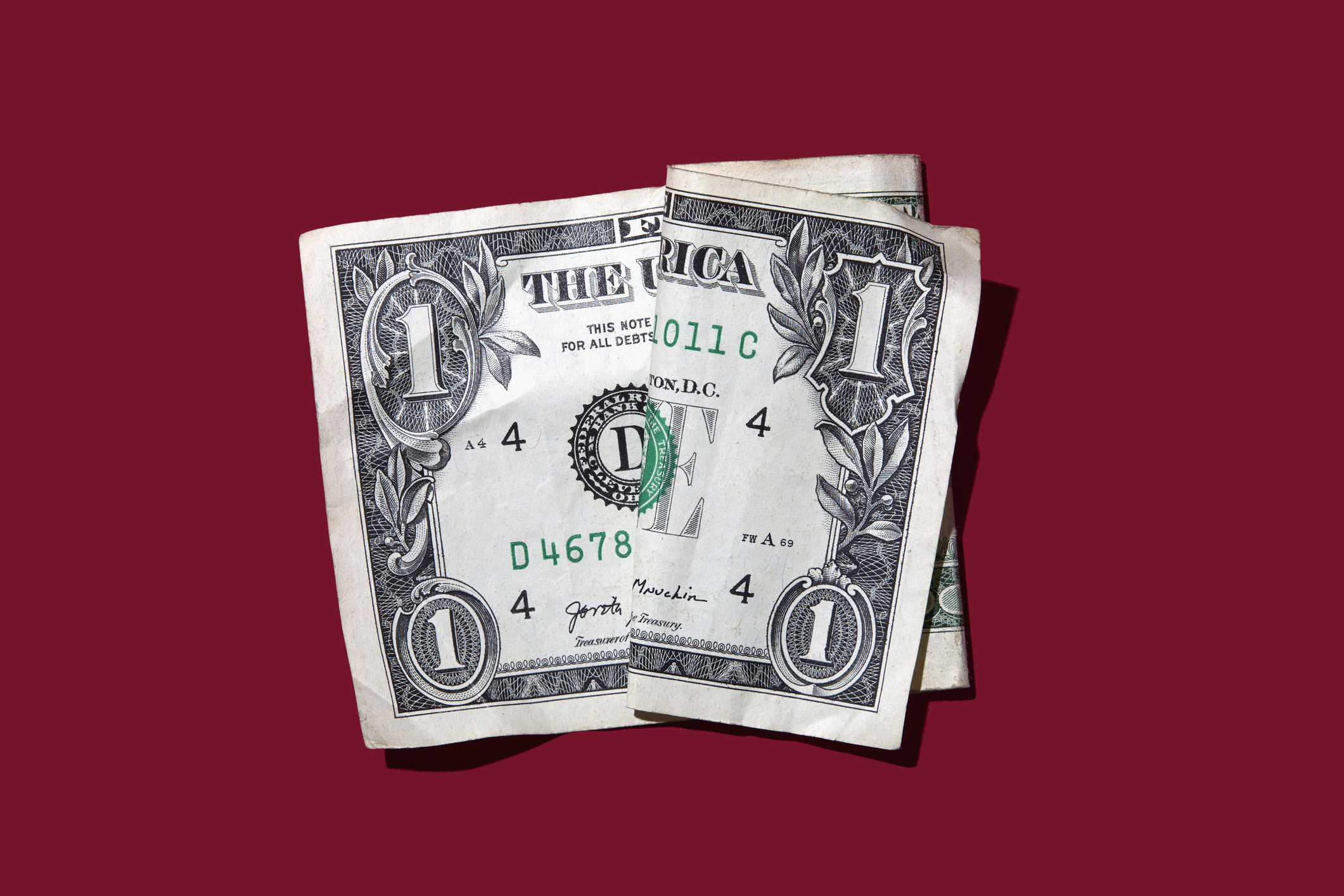Iowa Tax Guide
Explore Iowa's state tax rates for income, sales, property, retirement, and more. Learn how Iowa compares nationwide.

Katelyn Washington

Profit and prosper with the best of Kiplinger's advice on investing, taxes, retirement, personal finance and much more. Delivered daily. Enter your email in the box and click Sign Me Up.
You are now subscribed
Your newsletter sign-up was successful
Want to add more newsletters?

Delivered daily
Kiplinger Today
Profit and prosper with the best of Kiplinger's advice on investing, taxes, retirement, personal finance and much more delivered daily. Smart money moves start here.

Sent five days a week
Kiplinger A Step Ahead
Get practical help to make better financial decisions in your everyday life, from spending to savings on top deals.

Delivered daily
Kiplinger Closing Bell
Get today's biggest financial and investing headlines delivered to your inbox every day the U.S. stock market is open.

Sent twice a week
Kiplinger Adviser Intel
Financial pros across the country share best practices and fresh tactics to preserve and grow your wealth.

Delivered weekly
Kiplinger Tax Tips
Trim your federal and state tax bills with practical tax-planning and tax-cutting strategies.

Sent twice a week
Kiplinger Retirement Tips
Your twice-a-week guide to planning and enjoying a financially secure and richly rewarding retirement

Sent bimonthly.
Kiplinger Adviser Angle
Insights for advisers, wealth managers and other financial professionals.

Sent twice a week
Kiplinger Investing Weekly
Your twice-a-week roundup of promising stocks, funds, companies and industries you should consider, ones you should avoid, and why.

Sent weekly for six weeks
Kiplinger Invest for Retirement
Your step-by-step six-part series on how to invest for retirement, from devising a successful strategy to exactly which investments to choose.
Navigating the complexities of state taxes can be daunting, but understanding Iowa's tax landscape is essential for residents and newcomers alike.
In this guide, we'll explore key components of The Hawkeye State's tax system, from income and sales taxes to property taxes and retirement benefits.
Iowa state tax: Overview
Iowa residents will see lower tax bills this year, thanks to a drop in the state’s income tax rate. A major tax reform brings the top rate down to a flat 3.9% as of 2026, putting Iowa among the states with the lowest personal income taxes. That is quite a shift from just a few years ago.
From just $107.88 $24.99 for Kiplinger Personal Finance
Become a smarter, better informed investor. Subscribe from just $107.88 $24.99, plus get up to 4 Special Issues

Sign up for Kiplinger’s Free Newsletters
Profit and prosper with the best of expert advice on investing, taxes, retirement, personal finance and more - straight to your e-mail.
Profit and prosper with the best of expert advice - straight to your e-mail.
The state also doesn't tax qualified pension income or inheritances, making it especially appealing for retirees. Of course, with lower taxes, there is always the question of how public services will be funded. But for now, let’s take a closer look at Iowa’s changing tax landscape.
[Data for this state tax guide was gathered from several sources including the U.S. Census Bureau, the state’s government website, the Sales Tax Handbook, and the Tax Foundation. Property taxes are cited as a rate percentage rather than the assessed value.]
Iowa income tax

Iowa adopted a single individual income tax rate in 2025, lowering the top rate from 5.7% to a flat 3.8%. That’s significantly lower than the peak rate of nearly 9% about six years ago, when state lawmakers first began reducing the personal income tax.
According to state documents, a flat individual income tax rate of 3.8% is in effect for 2026. Reducing the income tax is expected to bring in nearly $1 billion in tax savings for Iowans within the first two years.
As reported by Kiplinger, the measure adds the state to the 14 states that have a flat income tax rate, which has also earned the state a spot among the lowest income taxes in the nation.
Update: As of 2026, sports betting winnings will be considered as earned income. If federal taxes must be withheld, the sportsbook or payor will withhold income taxes before you get paid.
Iowa retirement taxes
Iowa recently made retirement income tax-exempt for residents 55 and older and eliminated its inheritance tax for tax years 2025 and later.
- Social Security: Not taxable
- Pensions: Not taxable
- 401k and IRA Distributions: Not taxable
Iowa sales tax

Iowa has a state sales tax rate of 6%. Localities can add as much as 0.94%, and the average combined rate is 6.94%, according to the Tax Foundation.
- Groceries: Exempt
- Prescription drugs: Exempt
- Clothing: Taxable
- Diapers and some feminine hygiene products: Exempt
How much are property taxes in Iowa?

In Iowa, the average effective property tax rate is 1.24% (2026).
The property tax cycle in Iowa happens across eighteen months. Residents and property owners get an individual assessed value of their property on January 1. The first half payment for property taxes is due in the fall of the next year, and the remaining portion is paid in the spring.
That means the assessment for January 2025 would be associated with taxes due in the fall of 2026 and the spring of 2027, according to Iowa’s Department of Revenue.
Iowa Property Tax Breaks for Retirees
Iowa introduced a new Homestead Tax Exemption for Claimants 65 Years or Older last year. For the 2025 assessment year, the exemption (amount excluded from a property's taxable value) is worth $6,500.
Additionally, military service tax exemptions were raised to $4,000 in taxable value for assessment years on or after January 1, 2023.
Iowa gas tax

Iowa has close to the lowest gas tax rates in the nation, making it a good choice for commuters.
Gasoline | $0.31 per gallon |
Diesel | $0.33 per gallon |
Source: Sales Tax Handbook
Iowa taxes on alcohol and tobacco
Product | Tax amount |
|---|---|
Cigarettes | $1.36 per pack of 20, $1.70 per pack of 25 |
Other tobacco products | 50% of wholesale price |
Medical Marijuana | 0% |
Source: Sales Tax Handbook
Product | Tax amount |
|---|---|
Beer | $0.19 per gallon |
Wine | $1.75 per gallon |
Liquor | State Controlled |
Source: Sales Tax Handbook
Iowa estate and inheritance taxes
Iowa started phasing out its inheritance tax three years ago by reducing the rate of tax by 20% each year (the original base rates ranged from 5% to 15%).
The tax has been completely repealed as of January 1, 2025.
Related Content
Profit and prosper with the best of Kiplinger's advice on investing, taxes, retirement, personal finance and much more. Delivered daily. Enter your email in the box and click Sign Me Up.

Gabriella Cruz-Martínez is a finance journalist with 8 years of experience covering consumer debt, economic policy, and tax.
Gabriella’s work has also appeared in Yahoo Finance, Money Magazine, The Hyde Park Herald, and the Journal Gazette & Times-Courier.
As a reporter and journalist, she enjoys writing stories that empower people from diverse backgrounds about their finances, no matter their stage in life.
- Katelyn WashingtonFormer Tax Writer
-
 Will You Get a Trump Tariff Refund in 2026? What to Know Now
Will You Get a Trump Tariff Refund in 2026? What to Know NowTax Law The Supreme Court's tariff ruling has many wondering about refund rights and how tariff refunds would work.
-
 2026 Tax Refund Delays: 5 States Where Your Money Is Stuck
2026 Tax Refund Delays: 5 States Where Your Money Is StuckState Tax From New York to Oregon, your state income tax refund could be delayed for weeks. Here's what to know.
-
 Paper Tax Filers Face Long Wait as IRS Digitization Effort Stalls
Paper Tax Filers Face Long Wait as IRS Digitization Effort StallsTax Filing Last April, the IRS launched its Zero Paper Initiative to speed up paper tax return processing. The project isn’t going well.
-
 2026 Tax Refund Delays: 5 States Where Your Money Is Stuck
2026 Tax Refund Delays: 5 States Where Your Money Is StuckState Tax From New York to Oregon, your state income tax refund could be delayed for weeks. Here's what to know.
-
 How One Extra Dollar of Income Can Cost You Thousands in Retirement
How One Extra Dollar of Income Can Cost You Thousands in RetirementRetirement Even modest changes in retirement income can raise Medicare premiums under IRMAA. Here’s how a small increase can affect your retirement costs.
-
 First the Penny, Now the Nickel? The New Math Behind Your Sales Tax and Total
First the Penny, Now the Nickel? The New Math Behind Your Sales Tax and TotalRounding Tax A new era of "Swedish rounding" hits U.S. registers soon. Learn why the nickel might be on the chopping block, and how to save money by choosing the right way to pay.
-
 Over 65? Here's What the New $6K Senior Tax Deduction Means for Medicare IRMAA
Over 65? Here's What the New $6K Senior Tax Deduction Means for Medicare IRMAATax Breaks A new tax deduction for people over age 65 has some thinking about Medicare premiums and MAGI strategy.
-
 U.S. Congress to End Emergency Tax Bill Over $6,000 Senior Deduction and Tip, Overtime Tax Breaks in D.C.
U.S. Congress to End Emergency Tax Bill Over $6,000 Senior Deduction and Tip, Overtime Tax Breaks in D.C.Tax Law Here's how taxpayers can amend their already-filed income tax returns amid a potentially looming legal battle on Capitol Hill.
-
 How to Open Your Kid's $1,000 Trump Account
How to Open Your Kid's $1,000 Trump AccountTax Breaks Filing income taxes in 2026? You won't want to miss Form 4547 to claim a $1,000 Trump Account for your child.
-
 In Arkansas and Illinois, Groceries Just Got Cheaper, But Not By Much
In Arkansas and Illinois, Groceries Just Got Cheaper, But Not By MuchFood Prices Arkansas and Illinois are the most recent states to repeal sales tax on groceries. Will it really help shoppers with their food bills?
-
 7 Bad Tax Habits to Kick Right Now
7 Bad Tax Habits to Kick Right NowTax Tips Ditch these seven common habits to sidestep IRS red flags for a smoother, faster 2026 income tax filing.